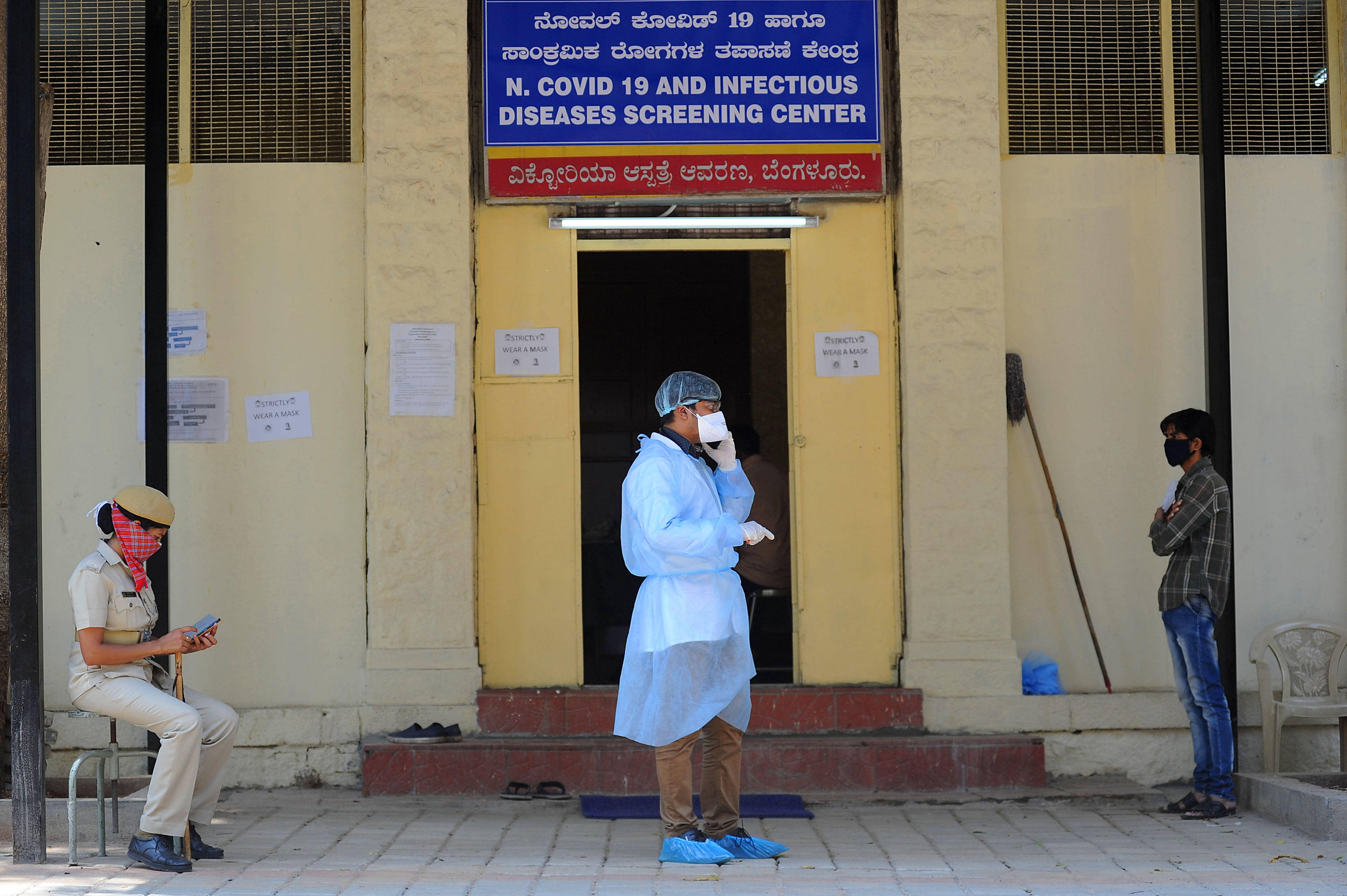Coronaviruses are a group of related viruses which cause diseases in mammals and birds. The SARS-CoV-2 virus causes Covid-19, which is highly contagious and spreads very fast. The Covid-19 pandemic has so far caused over 17,000 deaths worldwide but, without trivializing the severity of the pandemic, societies worldwide have done little to minimize or eliminate far bigger killers.
Hunger kills around nine million every year. Those who don’t die of hunger fall prey to other diseases, and surviving to suffer disease is quite as serious as death. Of the annual 56.9 million deaths worldwide, 54% are due to ischaemic heart disease, stroke, chronic obstructive pulmonary disease, lower respiratory infections, Alzheimer’s and other dementia, cancers, diabetes, road injury, diahorreal diseases and tuberculosis, in that order. Additionally, war and conflict-related deaths due to disease and starvation, apart from bullet-and-bomb deaths.
An industrialist stated, as DH reported, that “health is priority” and “business and livelihood is not the priority”, mitigating it with “Health of the employees is the responsibility of respective employers”. Employers are also to teach employees about basic hygiene practices, social distancing, self-quarantining, etc., in preparation for Covid-19 spreading.
Social distancing and self-quarantining is possible only in economically better-off sections of society, due to their better physical living conditions and economic capacity to stay away from livelihood/job for some length of time.
It is impossible for poor people who live in severely cramped conditions. Self-quarantining means no money and hence no food. Such people are the large majority of our population. One person said, “It is not important for us whether we die of Covid-19 or some other disease”, due to living in an unhealthy environment with industrial and municipal waste.
The foregoing refers to urban areas, but it also applies in most rural settings due to poverty among landless agricultural labour, subsistence and marginal farmers, artisans and traders.
When large or small areas are locked down, normal social and economic life is affected. Movement of people is reduced, as is consumption of all sorts. Workers in big and MSME industrial sectors are laid off or paid reduced wages. Small proprietor-partnership businesses, travel/tourism and other service sectors begin to wind down. For daily-wage labourers, roadside vendors, petty traders, etc., with no cash in hand, it is a situation of day-to-day survival for themselves and their families.
People cannot continue with their usual jobs or occupations. Incomes fall or cease. Economically better-off people can manage with difficulty, but people from the poorest sections cannot. The unemployment situation worsens. There is no money in hand and people starve. Their weakened physical condition increases susceptibility to disease. Even if the job market picks up, many are not able to regain physical vigour and strength to resume their earlier occupation. It is a no-return, downward slide to destitution for the entire family when the breadwinner sinks below the level of physical or economic resuscitation, if and when that is made available.
This concerns the vast majority of India. The consequent effect on the national economy stares us in the face. It can trigger law and order situations like food riots, and upscaled petty crime and by hungry people to feed themselves and their families.
Complex societies are social structures which are susceptible to collapse because complexity increases vulnerability. When a sub-system in a complex system breaks down, it can be “repaired” to restore the system’s normal functioning. Simultaneous breakdown of multiple sub-systems can become critical, necessitating resuscitation measures. It is analogous to multiple-organ failure in a human body – beyond a point, resuscitation in intensive care fails.
In his book “Collapse”, Jared Diamond identifies five factors that contribute to collapse of complex societies: climate change, hostile neighbours, environmental problems, collapse of essential trading partners, and society’s response to the foregoing four factors. He refers to historical societies which were far less complex than modern nations.
The first three of the factors are present threats to our nation with its complex socio-economic linkages. The Covid-19 crisis could be the trigger for the fourth factor of failing trade due to a weakened economy.
Society, acting through elected governments, needs to address the threats with appropriate, adequate and timely measures, to eliminate the risk of socio-economic breakdown beyond the point of resuscitation.
Need of the hour
Before the current Covid-19 crisis, government had failed to put money in the hands of the poor to stimulate demand and help the flagging economy to pick up. It had preferred to focus budgetary and fiscal resources and attention on big industry and to rescue NPA-diseased banks with public money. This pre-existing economic situation intensifies the impact of the Covid-19 crisis on very large numbers of people and the economy. There is a dire need for permanent economic and financial policy to shift towards being people-oriented instead of big-business oriented, regardless of how long the Covid-19 threat lasts or when it may re-emerge.
State and central governments need to immediately institute systems to distribute the food grain surpluses lying in FCI warehouses free of cost to deserving people, who are easily identified. This should be done not as charity, but as a combined measure of social policy and economic revival.
When the economic system is slowing and huge numbers of people lose their livelihoods and are in danger of irreversible destitution, what they need is immediate economic help in terms of food and money. Responsibility for this economic help for survival rests firmly with the state and central governments for targeted social, economic and fiscal aid sans corruption, which governments must crush without politically motivated considerations. This is not the time for petty party politics.
Humanity also dictates that affluent sections of civil society and voluntary organizations give generously in cash and kind to lighten the economic blow and burden on poorer sections.
